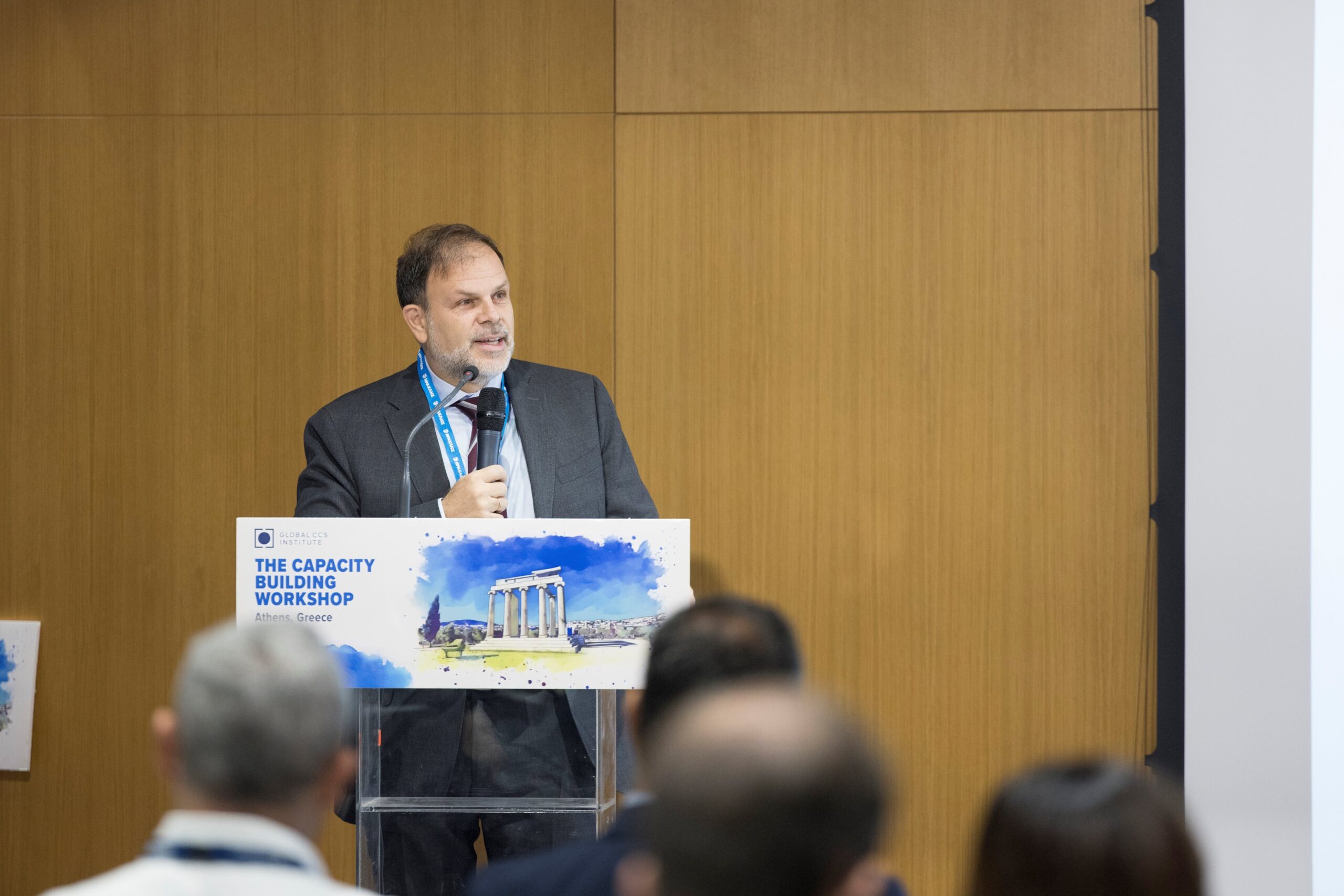HEREMA, the Global CCS Institute and EBN co-organized two-day
Capacity Building Workshop on Carbon Capture and Storage
Athens, 30 September 2024 – The Hellenic Hydrocarbons and Energy Resources Management Company (HEREMA), the leading international think tank Global CCS Institute and the public Dutch energy company Energie Beheer Nederland (EBN), co-organized the first ever Carbon Capture and Storage (CCS) Capacity Building Workshop in Greece, held at the premises of Heracles Group in Athens on 25-26 September. The event was inaugurated by the leadership of the Greek Ministry of Environment and Energy, Minister Theodoros Skylakakis, Deputy Minister Alexandra Sdoukou and Secretary General for Energy and Mineral Raw Materials, Aristotelis Aïvaliotis, who hailed the significance of CCS projects in the government’s energy strategy – reflected in the decision to include relevant targets in the country’s National Energy and Climate Plan (NECP).
The objective of the Workshop was to grow the understanding of regulatory and policy developments regarding CCS projects. It focused especially on CO2 storage permitting processes, given the maturing and implementation of a total of 14 relevant projects across the EU – including Greece. In that context, the event was attended by representatives of the Greek government and local companies-industries involved in the CCS chain (capture-transport-storage), as well as expert scientists from Greece and abroad.
HEREMA is the competent licensing authority in Greece for the geological storage of CO2 and for the exploration and underground storage of gases and liquids. Presenting the company’s key role, CEO Aristofanis Stefatos noted that HEREMA has been supporting the Greek CCS project in Prinos since its inception and is collaborating with the competent Ministry and EU institutions for the development of the necessary regulatory framework. He also stressed the necessity of identifying additional space for carbon storage in Greece, and Southern Europe in general, given its critical contribution to energy transition and in ensuring the competitiveness of hard-to-abate industries.
Head of Geoscience, Efthimios Tartaras, elaborated on HEREMA’s CCS mandate, overall challenges and current projects – including the storage permit for the Prinos project, for which the relevant application was filed this summer.
The first day of proceedings continued with a status update on the carbon storage project in the almost depleted field of Prinos in northern Greece, presented by Nikolas Rigas, Head of Carbon Storage at EnEarth, the decarbonisation subsidiary of Energean. Following that, Greek energy intensive industries ELPEDISON, HELLENiQ ENERGY, HERACLES Group, Motor Oil and TITAN Group presented their plans for carbon capture projects, collectively amounting to over 4Mtpa, for which they have raised significant funds from the EU Innovation Fund. Willem-Jan Plug from the EBN team developing the Porthos CCS project in the Dutch sector of the North Sea, also joined the conversation to provide insights on the permit application and planning process related to “Porthos.”
Members of the Global CCS Institute –a think tank whose mission is to accelerate the deployment of CCS in an effort to deliver climate neutrality– supported key discussions at the Workshop, led by Dr. Chris Consoli, Principal Consultant for CO2 Storage; Ellina Levina, Head of Public Affairs; Nabeela Raji, Legal and Regulatory Lead; and Bruno Gerrits, Business Development Manager (Europe). Along with providing participants with the current status of storage sites in Europe and cross-border transport, the Institute also shared their expertise on the processes tied to CCS licensing and storage permit applications.
The second day of proceedings included technical presentations and discussions. Vassilis Gaganis, Associate Professor at the National Technical University of Athens, gave an overview of the development of storage capacity and its limitations; Filip Neele of the Dutch Organization for Applied Scientific Research (TNO) dove deeper, linking geological storage of CO2 to the Dutch experience; his colleague Wiebe van Driel explored lessons learned from licensing in the Netherlands; and Stijn Santen from EBN presented a study on stakeholder engagement for the development and implementation of CCS projects.
The Workshop was concluded with a panel comprising stakeholders from industry and government reflecting on lessons learned, and discussing necessary next steps for the successful implementation of the promising CCS technology.
